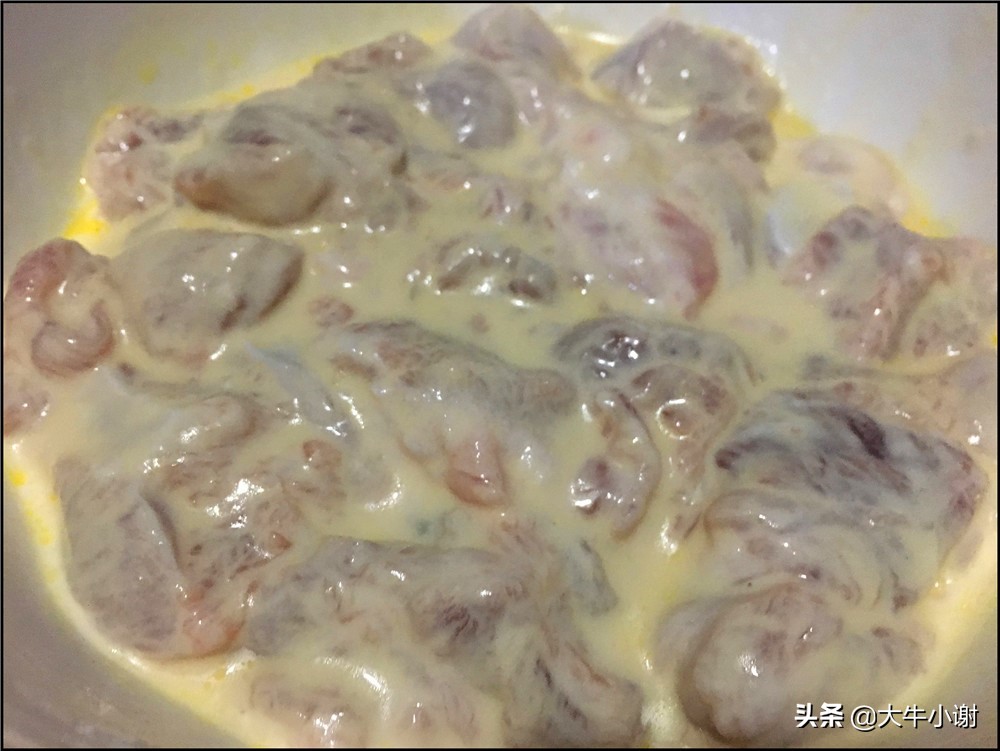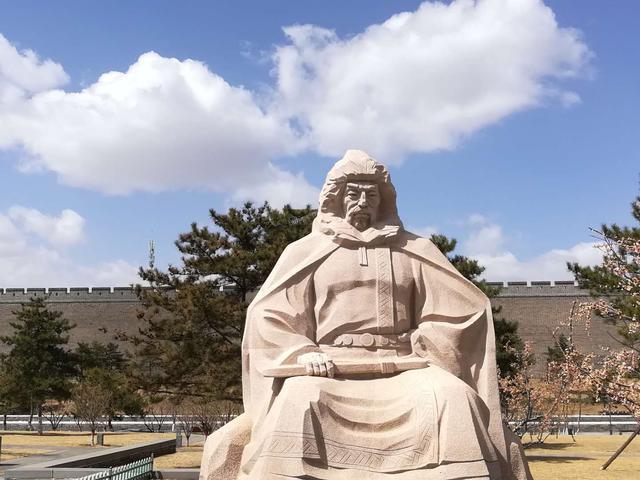SFC Talk | Jürgen Klute: Europe should build a closer cooperation with China
南方财经全媒体记者郑青亭 杨雨莱 北京、广州报道
"Strengthening cooperation with China is possibly the only option; cooperation is of vital importance. The global landscape is dominated by three major players: the U.S., China, and Europe. If the U.S. does not support multilateralism, we must seek alternatives," Jürgen Klute, the former member of the European Parliament, told in an exclusive interview with Southern Finance Corporation.
The U.S. President Donald Trump signed a proclamation announcing a 25% tariff on imported cars in March, and will be effective on April 2. Trump stated that the auto tariffs would be permanent and that no tariffs would be imposed on vehicles manufactured in the U.S. Trump's announcement quickly drew condemnation from U.S. trade partners, including the EU, Canada, and Japan.
Facing the tense global environment, Klute emphasized the need for more dialogue and cooperation between China and Europe, especially at the political level. "Given the confusion caused by Trump's unstable policies , it is essential to establish a clear and stable framework for political dialogue," he said.
SFC Talk: What are your key takeaways from 2025 Zhongguancun Forum?
Jürgen Klute: My takeaway from this forum is that China is really advancing in technology, in robots and in artificial intelligence. That is really amazing. What I saw was all the robots and all the presentations.
SFC Talk: How can China and Europe enhance their strategic partnership to address global challenges like climate change amid rising geopolitical tensions?
Jürgen Klute: I think the most important point is to have a stronger, closer exchange on an academic level and an industrial level. On the academic level, I saw that you have a lot of universities, a lot of academics. They are working on these issues. And on the other hand, you are doing a lot of things on the economic level to bring all this in academic investigations into practice. And in Europe, from my point of view, we are losing a little bit of the speed of economic and academic development. Therefore I think the main part is to cooperate and to bring people together.
SFC Talk: Now, all eyes are on President Donald Trump's reciprocal tariffs, and he even threatened to withdraw from the WTO. In this context, in what ways can China and Europe collaborate to promote multilateralism and uphold international trade norms in the face of increasing protectionism?
Jürgen Klute: Currently, Europe is a little bit pending between China and the USA. I think it is necessary to find a clear direction from the European side and to come in on both levels, or more than two levels in a discussion in an exchange with China, as we need it on a political level, of course. But the political level is not enough. If you really want to become more independent from this tariff policy of Trump, then you have to cooperate on a practical level as well. And that's what I'm doing and what we are doing with our NGO. I'm a representative of a Belgium-based NGO, which is called Europe Silk Road Connect. And that's our idea to bring people together. That means smaller and middle-sized companies. The big company does it on its own, of course.
And on the other hand, we are trying to bring academics in contact and exchange. When we came here to Beijing, to this conference, we brought representatives from the academic level and from companies to here to start this cooperation in very practical terms.
SFC Talk: What strategies can China and Europe employ to balance competition and cooperation in technological innovation and digital economies?
Jürgen Klute: At least the typical European way is to implement a financial program from the EU level and then offer it to organizations, companies and universities to apply for money from these funds, as a support for a concrete corporation. That exists with different regions of the world. And that should be organized for China as well, stronger than it was in the past. Students can get stipends to go to China to spend one to three semesters here. That's one point.
On the other hand, you can support to exchange collaborators and employees to let it better known. And you can foster the cooperation between universities. That are the measures Europe use normally, but it is up to the politicians negotiating with the Chinese government to implement a political framework to make this possible.
SFC Talk: How can China and Europe work together to ensure energy security and advance the transition to sustainable energy sources?
Jürgen Klute: China is very ahead in producing batteries. Batteries are crucial for electric mobility and there is already a lot ongoing. The other point is how to use artificial intelligence to reduce energy consumption. We have two possibilities to fight climate warming. You can change energy production from fossil energy to solar energy. That's one point. And the other point is to reduce the consumption of energy. And I think artificial intelligence opens a lot of possibilities to reduce energy consumption.
SFC Talk: What role does cultural exchange play in strengthening China-Europe relations? And how can it be leveraged to mitigate geopolitical frictions?
Jürgen Klute: Europe and China have different cultures and very different languages. I think we have to start on different levels. On one hand, I think it would be good to learn, or, at school, to offer more lessons about China's history, culture and China's language. On the other hand, I saw that in the hotel here, everything is in China's language and it could be done more in English as well. That makes it a little bit easier for Europeans when they go to China. I think that's one of the biggest obstacles for small and medium-sized companies in Europe that they don't know the culture.
It's very easy. If you meet people, how do you say hello and how you can avoid misunderstandings by wrong behavior. And on the other hand, you have to know the different laws in China and in Europe. Therefore, it's important to offer people, especially smaller and medium-sized companies to learn about this as a precondition of developing cooperation. And it's a little (difficult) but our NGO started to offer small and medium-size companies in Europe and China as well. And we want to accompany companies if they want to start a cooperation.
SFC Talk: How often do you come to China, and what impressed you most this time during your visit to China?
Jürgen Klute: This is my first time. I knew about China from newspapers and books, of course. But it's quite different from what I read in the past. It is more modern than I expected, and it was very easy to enter at the border. I expected stronger border control.
If you go to the USA, it has much stronger border control. The people are very open and friendly here. What I really like is the food here. I had a lot of possibilities, meanwhile, during the last two days, to taste food. It is quite different from the Chinese restaurants in Europe. That was a very personal level, of course, but you asked for my impression and that's my impression. It's one of the best foods I ever had. I like Turkish food. I was often in Turkey and they have good food as well. But the food here is much better. And it was surprising for me to eat it. If you are in the USA or if you are in Europe, you get offered very cold drinks. But here you get, all the time, hot drinks and warm drinks and juices as well, warm. In Europe, they are cooled down to nearly zero ground. But here it's always warm. And it was a new experience.
SFC Talk: And how has the Belt and Road Initiative influenced trade dynamics between China and Europe? And what measurable impacts have emerged since its inception in Europe?
Jürgen Klute: When this initiative started, a lot of Chinese cities started to look for twin towns in Europe, and that was new. And I think that's the biggest impact. We already had commercial exchanges between Europe and China. But this Belt and Road Initiative started in cultural exchange as well. I lived in Germany in a rural area.
That's old in Germany. And a lot of Chinese cities asked for twin ships with cities in this region. And that was the first time that people on the local level came in contact with Chinese people. And they heard about the newspapers, they wrote about that. Currently, it's a little bit cold down. It depends on global development and conflicts. But that was a visible impact. Suddenly, China was an issue in daily newspapers because there came the Chinese delegation or there came the train from China to Europe. And they brought a lot of products and newspapers wrote about that. The train needs two to three weeks, which depends a little bit on transport. You could read a lot of things, suddenly, about this interconnection between China and Europe. Before, it was more in the back. It happened, but it was in the back and nobody knew about it.
SFC Talk: We have to talk about the U.S. impact on China-EU ties. What are the potential impacts of U.S. foreign policy shifts on China-Europe cooperation? And how can both parties navigate these changes?
Jürgen Klute: My impression is that Trump doesn't like China and he wants to take a lot of jobs back from China to the USA. And another point is the raw materials you need for the ecological transition, for the green transition. And that makes it more difficult for Europe. You have to, at least, take a decision. Will we follow Trump and his unstable policy? Do we want to become more independent from the USA?
After the Second World War, Europe became dependent on the USA. And now we are in the situation that we have to take a decision in Europe. Do we want to become more independent, and should we more follow the China's direction? Should we be more oriented to the East? And if we want to do that, then we have to organize closer exchange on all levels, on political level, on academic level, on cultural level, on economic level in order to handle it. It's not enough to say we want to do it. You have to do it. And if you want to do it, then you really have to do it in practice.
SFC Talk: In your opinion, should Europe be more independent?
Jürgen Klute: Yes, I think so. You can't rely any longer on this government in Washington. And I don't see that this situation will be solved within the next four years. Trump is thinking about getting elected for a third time. It's not allowed so far, because it is blocked in the American Constitution. But they have already started the debate. Could we change the Constitution? And then this policy will continue. You have to take that into account. Then you have to, from my point of view, take a decision very quickly. And on the other hand, from my point of view, the main problem we have is climate change, the climate warming. Trump is fighting against a policy that will protect the climate.
China is going the opposite way. From my point of view, it's the most important reason to cooperate. And the other point, which is a further point I take from here, is that China is still interested in global cooperation, not isolation. And Trump is interested in isolation. Therefore, it would be good for Europe to cooperate with China, to be closer with China, because China is defending cooperation.
SFC Talk: In order to get more independence, Europe should have some more friends, including China?
Jürgen Klute: Yes, it is the only possibility. Europe on its own is too small. You need cooperation. And then, we have the USA, China and Europe, the three big players on the globe. And if the USA disappears, then you have to take the alternative option.
SFC Talk: Will China and Europe have more dialogue, more cooperation and collaboration?
Jürgen Klute: Of course, especially on the political level. Because all the politicians are a little bit confused, caused by all these terrible politics from Trump. Therefore, it's necessary to have a more stable dialogue. And you need a clear political framework for dialogue.
Chief Producer: Yu Xiaona
Supervising Producer: Shi Shi
Editor: Li Yinong
Reporter: Zheng Qingting, Yang Yulai
Video Editor: Li Qun, Cai Yutian
New Media Coordination: Ding Qingyun, Zeng Tingfang, Lai Xi, Huang Daxun
Overseas Operations Supervising Producer: Huang Yanshu
Overseas Content Coordinator: Huang Zihao
Overseas Operations Editors: Zhuang Huan, Wu Wanjie, Long Lihua, Zhang Weitao
Produced by: Southern Finance Omnimedia Group
更多内容请下载21财经APP






